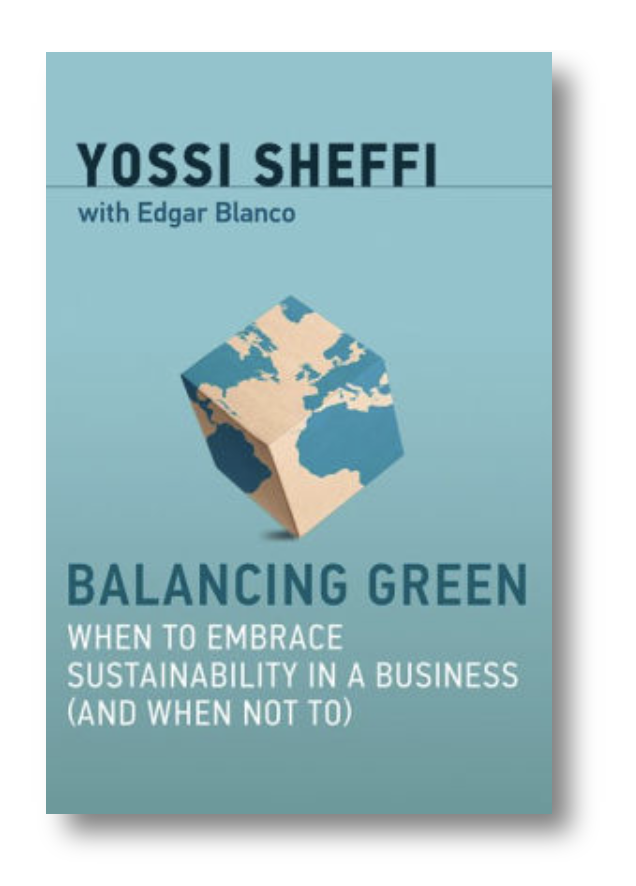Yossi Sheffi says,
sustainability can only go so far if higher costs scare off customers.
Yossi Sheffi is a connoisseur of systems. As a serial entrepreneur in the logistics field and director of MIT’s Center for Transportation and Logistics, Sheffi has spent a lot of time thinking about how complex networks of people, products, and vehicles operate. In his latest book, “Balancing Green: When to Embrace Sustainability in a Business (and When Not To),’’ Sheffi brings this perspective to the push for corporate responsibility, analyzing the challenges and benefits of “going green” in a multilayered global economy.
Q. What is the essential message of your book?
A. That it is unfair to hold businesses to be the main responsible actor for sustainability.
A lot of the sloganeering out there is “profit vs. planet” or “people vs. planet.” It’s not: It’s people vs. people. It’s people who care about the environment, and people who care about their jobs and being able to afford stuff. It is not between right and wrong — it’s between two rights. The problem is much more nuanced than people think. People look at companies and ask, “Are they sustainable or not?” It’s the wrong question. The question is the supply chain. All [Apple’s] facilities are now carbon-neutral. So what? The big carbon footprint is when you manufacture. You have to look at their manufacturers in China, what they do. Unless you look at the entire supply chain, it’s a misleading message.
Q. What are some of the ways green practices can be financially advantageous for companies?
A. When I talk to [some] people, it’s not that they don’t believe in global warming.
They don’t believe that the stuff they are asked to do is worth doing because it’s incremental and small and not going to help much. But it doesn’t matter if you believe it or not, because if your customers believe in it then you have to do something. Otherwise, your customers will punish you. I talk about three reasons to do something. First, certain things also cut costs and increase profit, like energy savings. The second thing is risk management, because if you do nothing you’ll be attacked by Greenpeace, by some other NGOs, and some people will listen and stop buying your stuff. So you don’t want to be a target. The third reason is hedging. The market might be changing, and in the future, people might pay more for sustainable products. There is a huge difference between say and pay. When you ask people, “Would you pay more for a sustainable product?” everybody says yes. In truth only about 8 percent do. When they go to a supermarket and something is 10 cents lower, they buy that one, regardless of sustainability credentials. As long as people are not willing to do it, companies cannot be expected to invest in it and sell products that cost more.
